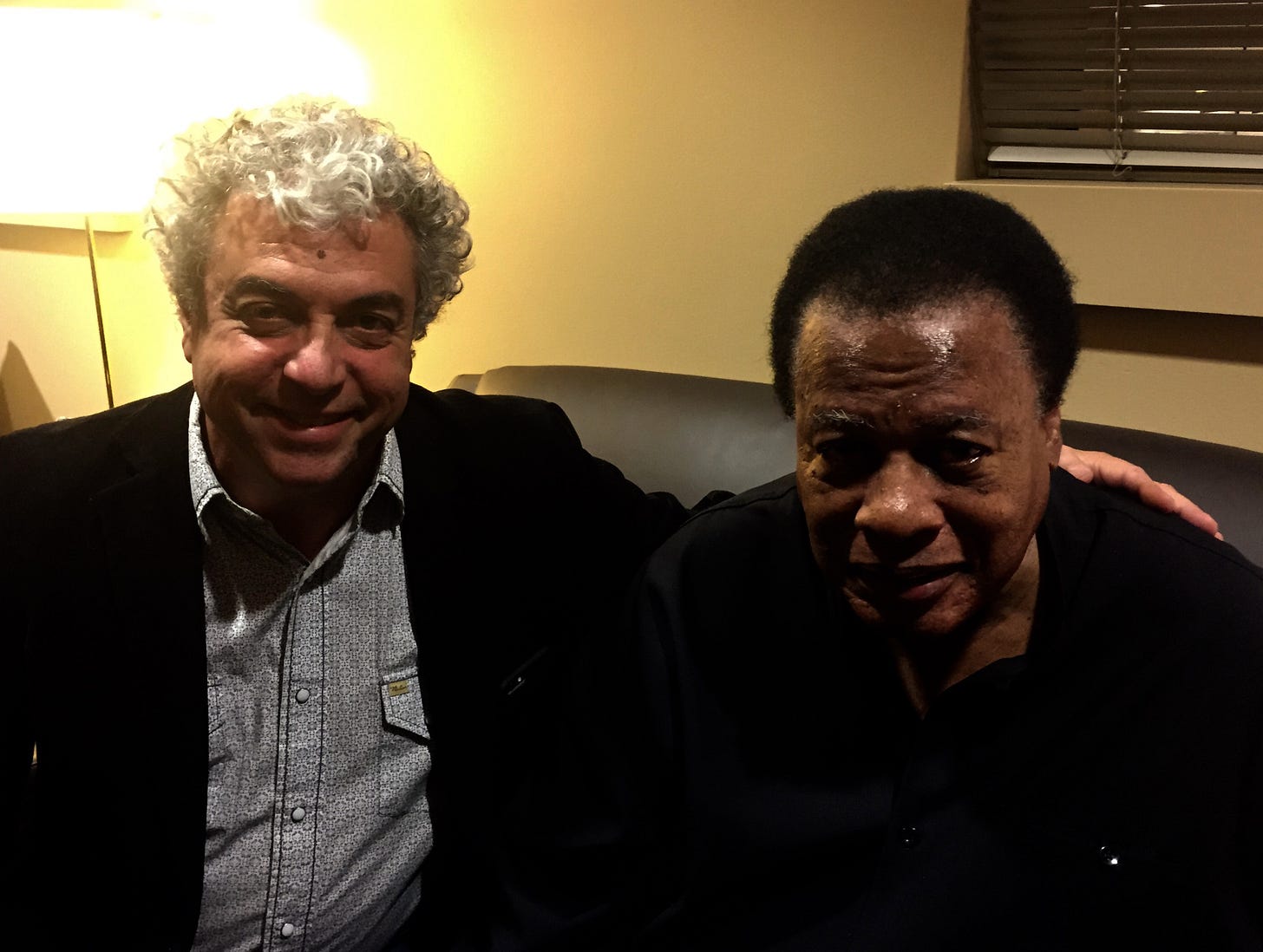Growing up in Brazil in the 1960s, my musical interests were shaped by the sonic environment I was immersed in. Radio was the primary means of music diffusion, and in the West Zone of Rio, that meant a very diverse cocktail of Brazilian songs – samba-canção, bossa nova, Jovem Guarda (Brazilian rock) plus American tunes (Burt Bacharach, Frank Sinatra, James Brown, Aretha Franklin), Italian and French romantic songs. As I entered my teens, my interests shifted to rock and roll – Beatles, Rolling Stones, Pink Floyd, Led Zeppelin, Yes and King Crimson.
At 15, I joined a band as an organist and we started to play rock covers as well as original compositions. Listening to music became a serious activity. I would spend my evenings sitting on my bed with two speakers on either side (no headphones) and carefully dissect my favorite album sides, sometimes repeating them several times to focus on each aspect of the music.
In 1974 I went to Montreal to continue my biology studies at McGill University. On my way there I bought a couple of albums in New York. One of them was Weather Report’s Mysterious Traveler. I had no idea of who was in the band – I just loved the cover image.
Until that day, my appreciation of the saxophone was limited to horn sections in soul and rock music. When I first put on that record, something happened – what was that sound? It was Wayne Shorter’s soprano sax, sounding like a fluid snake coming in and out of the tracks. I was immediately drawn to that mysterious sonority, and within a month I wanted to be a saxophonist as well. However, I continued to play the piano, joined another prog rock band in Canada and finally decided to return to Brazil in 1977 and continue my studies of environmental biology in the Amazon.
That was the moment I joined Hermeto Pascoal’s band, and my life path was radically altered. Suddenly I started to hear stories about Miles Davis, John McLaughlin, Joe Zawinul and yes, Wayne Shorter from Hermeto.
In 1979 we went to play the Montreux Jazz Festival and the Live Under the Sky Festival in Tokyo. Another act on the same festival was the VSOP Quintet, with Herbie Hancock, Ron Carter, Tony Williams, Freddie Hubbard and Wayne Shorter.
I was not introduced to Wayne, but there was a reception at the hotel for all the musicians, and I was standing in one corner chatting with our percussionist Pernambuco. Suddenly I see Wayne walking in a beeline across the ballroom straight towards us. He stopped in front of Pernambuco and said: “You’re a boxer!” Of course, Pernambuco did not understand English, so I translated what Wayne said and he answered: “How do you know? I was indeed a boxer at one time.” I said that back to Wayne and he said: “Of course! I knew it!” That was it, and he returned to where he was.
Later that same week we were invited to a party at Wayne’s hotel room. There were maybe 15 folks there, including Wayne’s wife the late Ana Maria. The party got animated as people drank, and through it all Wayne just sat there like a Zen master. At one point one of the musicians (not anyone from our band) said some very inappropriate words to Ana Maria, and the vibe quickly descended into a screaming match, as she kicked some of the rowdy folks out of the room. We decided to leave as well, but what was remarkable was how Wayne kept his cool through the whole episode.
I remained a fan of Wayne’s music, and our paths crossed a few more times over the years. He was always inspired and inspiring, not only in his incredible playing and composing, but also in the few conversations we had. Sometimes he was very cryptic, saying words that had no apparent connection with the subject, but when analyzed later pointed to a deep insight into the nature of music and creativity.
His influence in our musical world will remain forever.
Axé, Mestre Wayne Shorter!




